 Kate, one of our awesome pioneering farm managers, has been conducting various research as we develop this farm project; both to help us make more informed management decisions in our grazing plan as well as allow us to demonstrate what impact our actions have on the land over time. So much in the Permaculture world seems based on circumstantial evidence; and in response we aim to design, implement, monitor and refine what we do based on measurable and replicable methods. Moving to a new land requires endless observation, recording, researching & monitoring the impact of our actions, so here's a glimpse into how we have begun doing that here at the farm. We have around 40 species in our very varied pasture, with large variances in soil. Whilst the research conducted so far is just the beginning, it has been incredibly beneficial in terms of really getting a good sense of what we are actually working with. Bravo Kate, we are so happy to have had you with us here for this incredible first season. It feels so important more folks in the alternative agriculture/ permaculture world start producing useful data for the benefit of all, thank you so much for the integrity & diligence you contribute.
2 Comments
Here's a little fly-by over the farm center today. Incredible to reflect on the last 4 months where we have been joined by awesome people from all corners of the globe getting deep into education and action during this unique time establishing all systems from scratch. Empowering other's to manage their lives holistically and design solutions to bring their dreams forth is a major part of the Holistic Context we manage towards, and something we are excited to be able to share with so many bright, intelligent & gifted folks. It's been an epic ride so far! With just 3 weeks left of Internship #2 and our final PDC of the season around the corner we are surely looking forward to a restful winter to recuperate and plan for next season; with more animals, new trainings and new people bringing knowledge, skills and passion to everything that happens here at Ridgedale. We will be posting more about the opportunities for Core Team roles for 2015 (sign up to the Newsletter here) with more spaces for a bigger team to make next year even more incredible. Stay posted, we'll be reviewing the year and blogging a lot more over the winter to inform & support others who wish to undertake a similar journey. Last PDC at the farm for 2014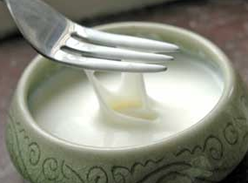 We will spend the weekend meeting locals and hosting an open day. One of our objectives is to better understand what people locally grew up eating, what they miss, what they wish they could buy regarding local & ecological food. Långfil (also known as long milk) is a kind of sour milk requiring low souring temperature and long maturation. It has a mild acidity, and texture is chewy almost bubbly like a whipped desert. The bacterial culture consists primarily of Lactococcus lactis ssp cremoris who put together the milk carbohydrates for long exopolysaccharides, which leads to the texture. 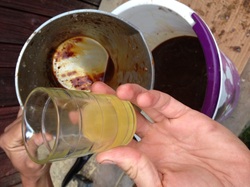 Fish hydrolysate is an awesome product for promoting plant growth. It’s high in Nitrogen, can be naturally produced, and is an awesome food for microbes. Fungi love it and it is easily produced at home. We use it as straight fertiliser, animal supplement and an ingredient in compost teas (Fungi: Bacteria balanced- Fungi orientated). Fish hydrolysate is composed of fish and glucose based sugars and uses lacto bacillus to break everything down using enzymes. Fish hydryolysate doesn’t undergo the heating and skimming process that you get with fish emulsion products. Heating breaks down beneficial amino acid chains and this cold process also retains the fats and oils that microbes love. 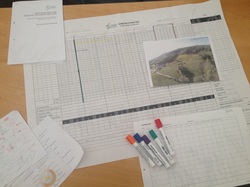 It's Day 2 of our certified Holistic Management training, dipping into the 2nd half of our awesome 10 Week Internship program. The Savory Institute has been updating, clarifying and simplifying their workbooks as smaller & more concise workbooks, available cheaply via their website. We have been running through Financial Planning and Grazing Planning today, using the farm as a model for planning for the factors, observations and circumstances we have in our situation, to ensure we create the best possible plan to move consistently towards our Holistic Context. We see managing holistically is key to forwarding effective regenerative enterprises and regenerating degraded landscapes whilst creating resilient & socially just incomes into the future. We plan to write some series of articles to clarify some of the common misconceptions and explain the process to support others to start managing holistically. Stay tuned for details.
We have another 10 Week Internship running at the farm July- Sept, with a few spots open, where once again we will be training up a diverse and engaging group in the following areas; The 10 Week internship includes over 530hrs of curriculum based learning & 5 Certificate Courses;
Elin, the Ridgedale Chef, has been lovingly restoring this old cream separator. We met a lovely old lady who used to be a champion milker at Ag school and had equipment lying around she was willing to sell us. Compared to modern equipment this gear is super robust, reliable and well engineered (at a fraction of the cost) We like well engineered stuff, and from the context of only needing dairy for farm needs, there seems no better way to go.  Our lovely Fjällko cows, Viola & Clover are doing great after their arrival to Ridgedale. They have adapted effortlessly to life in rotational grazing and seem to enjoy all the attention they get along with hand milking twice a day. With over 30 people representing all the major climate zones here at the farm there is demand for fresh milk and yoghurt, and Clover (who is in the early stages of her 2nd pregnancy and still giving great milk) is supplying it. Towards the end of the year we will have 3 cows and possibly Viola will be pregnant too, which should supply us with all our dairy needs. These cattle are well suited to our needs; a small cow that is hardy, comes from a mountain habitat and likes to browse on a wide variety of fodder and produces milk, that whilst not being so plentiful, comparing the yield per kg live body weight, it is on par with the larger breeds SRB and Swedish Holstein. In addition, mountain cow milk is very well suited to cheese production as it contains high levels of "good" protein. Compared with milk from other breeds it is (per kg milk) almost twice as large, which means it only goes to 7-8 kg mountain cow's milk to get 1 kg of cheese, compared with 14-16 kg of milk from commercial breeds. |
Details
Like us on FB Below for regular updatesStay up to date with customized updates you want to receive
Upcoming coursesArchives
December 2016
Categories
All
|
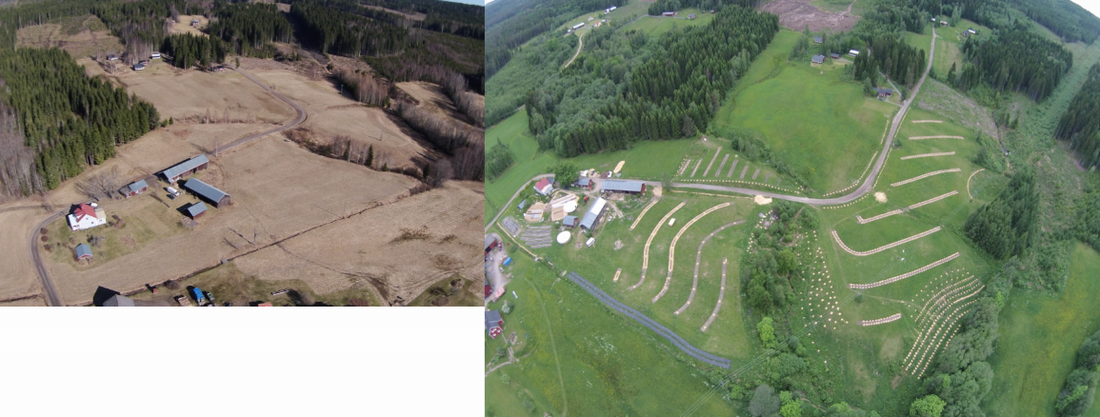

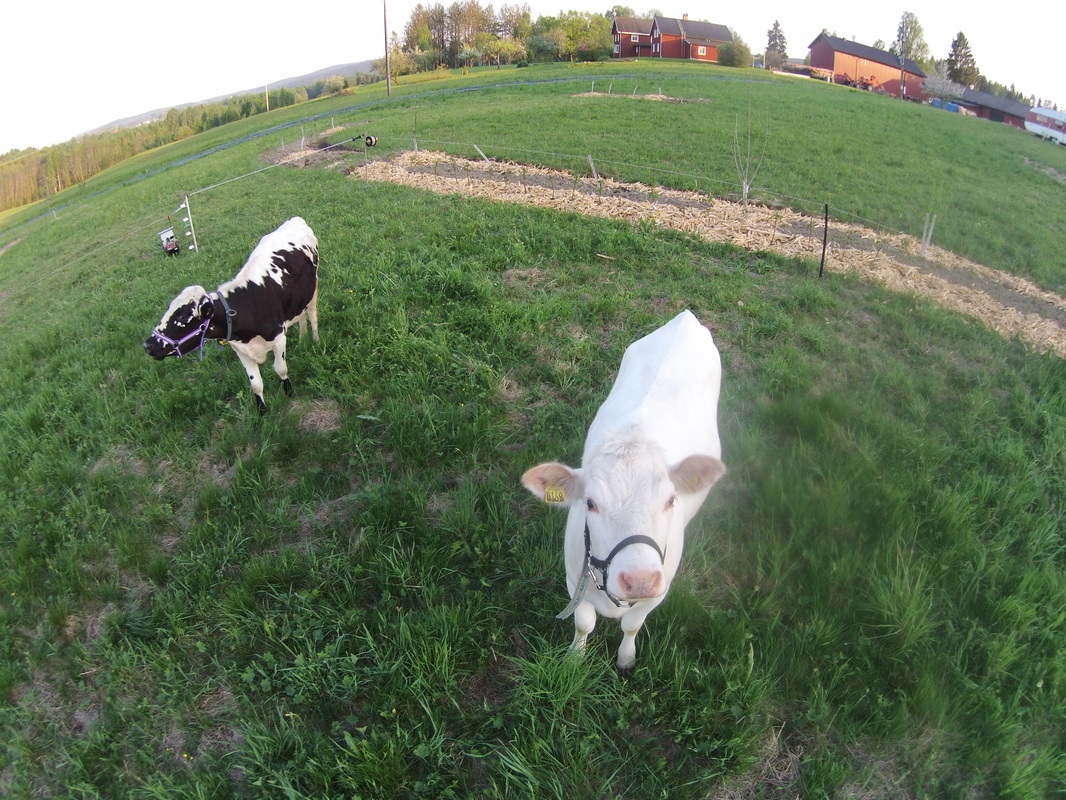

 RSS Feed
RSS Feed